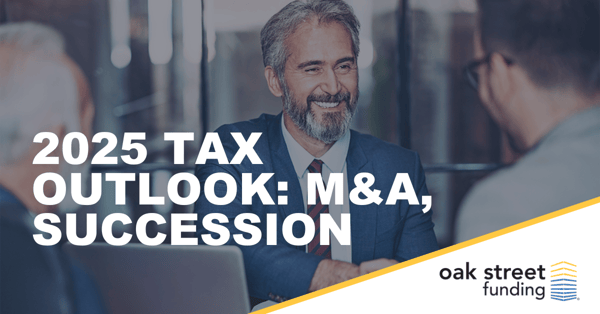
Recently, our local business journal ran an article discussing the uptick in CPA practices raising capital through private equity investment. There are many reasons for CPA practices to be looking for capital infusions but given the many advantages debt financing has over private equity, it is surprising the article didn’t delve further into using debt as a way to raise capital.
Here are a few insights the article missed explaining why CPA practice owners may want to consider debt, rather than private equity, to fund their growth goals.
CPA practices need for capital
There are many reasons why a CPA practice owner may need capital. Among them, the need to invest in technology – primarily AI – is a big driver behind accounting practices’ demand for capital. Increasingly, CPA practices are recognizing the many use cases for AI, including structured data extraction, AI-enriched key performance indicator analysis, and legislation research. Using AI to streamline these processes can help relieve staff shortages and free up existing staff to strengthen other practice areas, such as client advisory services.
CPA practice owners may also be looking for capital to fund a merger or acquisition. Acquiring another practice offers the opportunity to add talent, technology, and clients more quickly than through organic growth. It may also be an efficient on-ramp to new practice areas and revenue streams. Some practice owners feel the current climate demands that they consolidate or be consolidated.
About private equity
While private equity has some advantages over a traditional loan, it’s important to recognize private equity investments come with strings attached. As an owner, the investor assumes risk and that typically means they want to be involved in strategic planning.
Here are some points to consider when evaluating private equity as an option for raising capital:
-
- With private equity investment, practice owners give up full independence. They may have to report to someone else, depending on the size of the investment and the structure of the deal.
- Earnings are diluted among a bigger pool of owners.
- Earnings may be taxed at the long-term capital gains rate of up to 20%.
- Negotiating a deal with private equity investors can be a slow and time-consuming process, often taking longer than applying for debt financing.
- With additional stakeholders, management decisions can be slowed as more people need to be involved.
- Private equity owners may push to move the practice in different directions from those the original owners envisioned.
- Private equity investors may apply pressure to cut staff or reduce other costs to inflate profitability.
Advantages of debt financing
Using a loan to generate capital comes with several advantages when compared to private equity investment.
-
- CPA practice owners do not give up any ownership; they retain full autonomy
- Interest on the loan is tax deductible.
- Cash flow effects are predictable, as they’re based on a fixed repayment schedule.
- Loans offer the ability to leverage other people’s money without relinquishing decision-making power.
- Building a relationship with a lender can help with future capital needs.
- Repayment options can be flexible.
Other important considerations
Flexibility
Debt can be structured in a wide variety of ways to meet the needs of everyone involved in a transaction. For example, in some acquisitions, the seller may want to realize some liquidity from their practice but continue working in operations or with clients. The buyer can use debt financing to pay the seller a portion of the purchase price up front with a seller note or earnout over time, while retaining the seller on staff and having the advantage of their client relationships and expertise. Specialty lenders who are familiar with the CPA profession can be invaluable partners in structuring these creative arrangements.
Control over time horizon
Private equity is an investment, and investors are typically looking for a return on that investment in five to seven years on average. There may be pressure to sell the business in that time frame so they can recoup their investment, whether the other owners want to or not. With debt financing, there is no outside pressure to make changes to the business now or in the future.
Reliance on health of PE firm
With private equity investment, additional cash flows are reliant on the health of the PE firm. According to Rick Dennen, CEO of Oak Street Funding, nearly two-thirds of venture capital-backed startups fail due to lack of capital; if the equity capital company’s funding streams dry up – as they did in the 2008 financial crisis – so do those of the companies in which they invest.
Coming to a decision
With technology fundamentally reshaping the accounting profession, more and more CPA practices are looking for capital infusions to finance new infrastructure. Private equity is one option, but it comes with a number of limitations that might be off-putting to owners who value their autonomy. Debt financing has many advantages that are worth considering and it allows owners to stay in the driver’s seat.





/Resources%20Thumbnails%20(75).png?width=600&height=314&name=Resources%20Thumbnails%20(75).png)